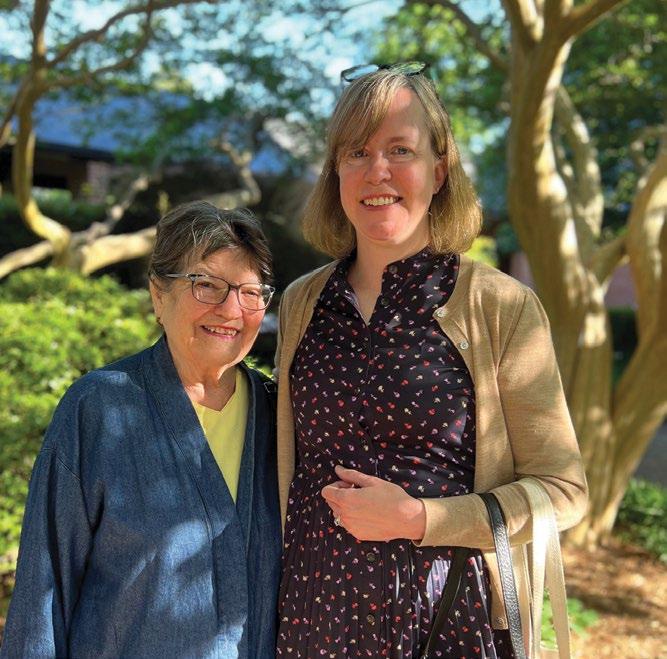
2 minute read
MOTHERS
The Desert Mothers fascinate me, though we dismiss their severe lifestyle choices because of our present-day sensibilities. Yet we can learn from their devotion, gentleness and determination to put God first.
One of the Desert Mothers, Amma Sarah (Amma, Latin for Mother), was a well-educated woman who lived alone for many years in a small cell near a river. She often attended to the needs of her nearby community. In her fascinating book The Forgotten Desert Mothers, author Laura Swann writes, “It is said that for 60 years she lived next to the river but never lifted her eyes to look at it.” I assume this was for fear that its beauty would distract her from being more fully united to God in prayer. She made use of her environment but did not feel any need to possess it. In other words, she certainly bathed and drank from the river but did not spend time enjoying its beauty.
Advertisement
Another woman, Eugenia of Alexandria, took her spiritual life to a new level. She dressed as a man and moved into a monastic community, where she fit in so well, she was elected abbot! She had a small cell built where she remained and managed to live a silent and solitary life while serving as a spiritual director for the brethren. I love her tenacity in achieving what she wanted in life, even though it was a bit deceptive. She proved that a woman could achieve what a man could, and she fulfilled her role remarkably well.
Swann writes that Amma Theodora is quoted as saying, “If one is habitually listening to secular speech, how can one yet live for God alone?” Wise words for us 21stst century people.
For so many thousands of years, women’s contributions to the world have been in the shadows. Women were the “power behind the throne,” always playing supporting roles. Although nearly forgotten to time and history, the Desert Mothers enjoyed a certain freedom and controlled their own lives.
Only in relatively recent times have women emerged from the shadows of men to serve in roles of leadership, and in the Episcopal Church, permitted to celebrate the Eucharist or preach. There have of course always been nuns, but their work in the Church has generally been relegated to roles in teaching, serving or nursing. (I certainly do not mean to imply that these are not vital roles.) In the mid 1970s, I was the first woman permitted to read a lesson in front of a congregation at the main service at our church in Connecticut. That was big stuff. I always felt a sense of frustration that I was not permitted to serve as an acolyte or chalice bearer because of my gender. To learn that the Desert Mothers were permitted to do most everything within their communities was an inspiration, but what difficult lives they had to endure in order to have that taste of freedom!
The Desert Mothers were able to have an intimate life with God, which filtered out anything harmful to their souls. An impossible task in today’s world, it seems. I have a lot to learn from these wonderful women. And while I cannot emulate all of their lifestyle choices, I can learn from their devotion and desire to live simpler lives, as close to God as possible.










